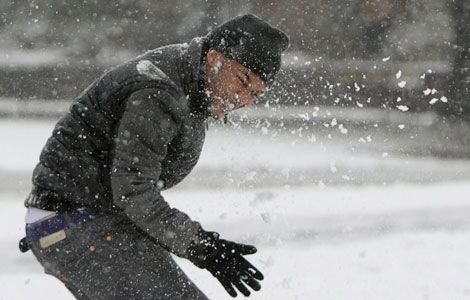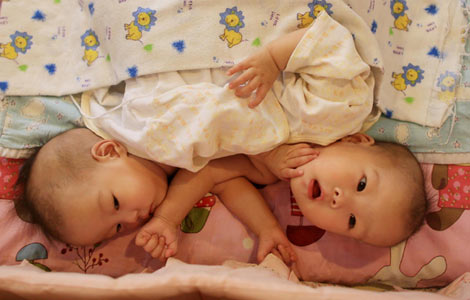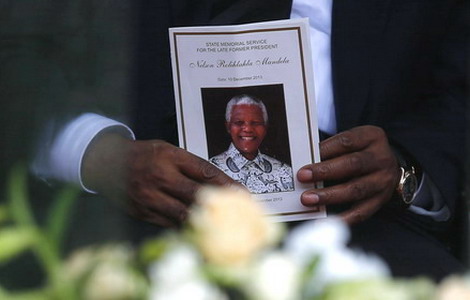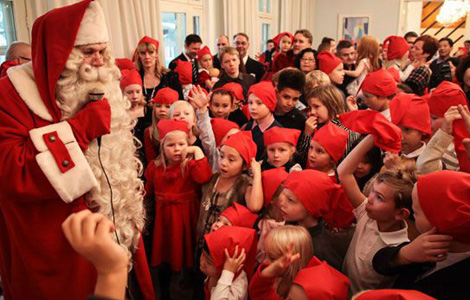Doors slam shut on 're-education' system
Updated: 2013-12-11 07:20
By Zhao Xu (China Daily)
|
||||||||
![The remaining office buildings of Jiabiangou farm. [Photo provided to China Daily] Doors slam shut on 're-education' system](../../attachement/jpg/site1/20131211/f04da2da78cd1411f43d1b.jpg) |
|
The remaining office buildings of Jiabiangou farm. [Photo provided to China Daily] |
Memories of the controversial punishment and the fight to abolish it live on, Zhao Xu reports in Beijing.
One of the most startling pieces of news to emerge from the Third Plenary Session of the 18th Communist Party of China Central Committee in November was the decision to abolish the long-standing, controversial correction system known as "re-education through labor", or laojiao.
The system originated in the mid-1950s as a means of dealing with "counterrevolutionaries" and "rightists", but from the 1980s its focus was expanded to target various forms of social deviancy, ranging from petty theft to prostitution and drug abuse. It enabled the police to sentence habitual petty criminals to up to four years detention without trial.
For He Fengming, a retired language professor from Gansu province, the decision came more than half a century too late. In December 1960, her husband died of hunger and cold at a laojiao farm in the remote northwestern province, but she wasn't officially informed. Instead, she only discovered the news when she visited the farm to check on her husband, who had been sent for re-education through labor after being denounced as a "rightist".
"I remember standing at the farm making a tentative inquiry about my husband. A man who was clearly in charge took out a notebook of names and started to run his middle finger down the first page, from top to bottom, and then the second, the third ... until he stopped at my husband's name. I thought he was about to tell me where he lived. But he just said one word: 'Dead'. He had been dead for a month," said the 81-year-old.
During the long winter of 1960, in the depths of the nationwide famine (1959-61), nearly 1,500 people died in Jiabiangou, their bones buried in shallow mass graves in the sandy soil.
"The night I learned about my husband's death, I cuddled up in the freezing cold of one of the underground caves that served as residences for the detainees, seeking consolation from a woman whose husband had died a similar death, and a brother and sister who had lost their father," said He. The woman, who described her experiences in a 2001 autobiography, My 1957, is also a lead character in the epic novel Stories from Jiabiangou, written by Yang Xianhui, and based on the real-life experiences of farm inmates. "Everything depicted in the book really happened," said the 67-year-old author. "But due to the circumstances, the information that remains about those men is fragmentary at best. I had no choice but to add up these piecemeal details in the telling of several related, but self-contained, stories, and present the book as a novel."

 Uruguay becomes 1st nation to legalize marijuana
Uruguay becomes 1st nation to legalize marijuana
 Snowstorm blasts US
Snowstorm blasts US
 2013 Nobel Prize award ceremony in Stockholm
2013 Nobel Prize award ceremony in Stockholm
 Reuters images of the year - politics
Reuters images of the year - politics
 Conjoined babies waiting for surgery
Conjoined babies waiting for surgery
 Chinese say their goodbyes
Chinese say their goodbyes
 Obama shakes hands with Cuban president Castro
Obama shakes hands with Cuban president Castro
 S Africa holds memorial service for Mandela
S Africa holds memorial service for Mandela
Most Viewed
Editor's Picks

|

|

|

|

|

|
Today's Top News
Handshake could signal improving ties
US Congress negotiators reach budget deal
Retirees saddled with kids' costs
Bar lowered for private pilots
Building impact reports will be released
Obama urges Congress to pass budget deal
Beijing announces theme, priorities of APEC
Battle against counterfeit goods enters a new phase
US Weekly

|

|







